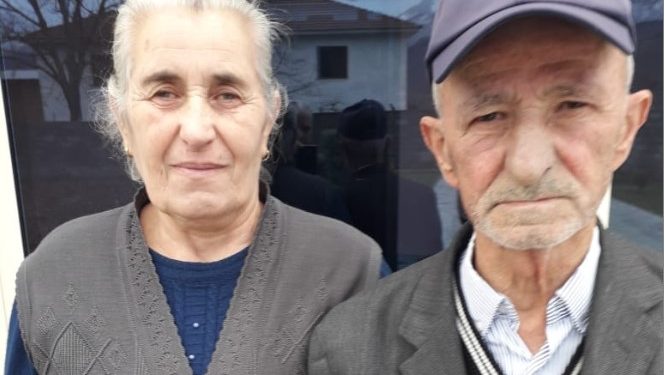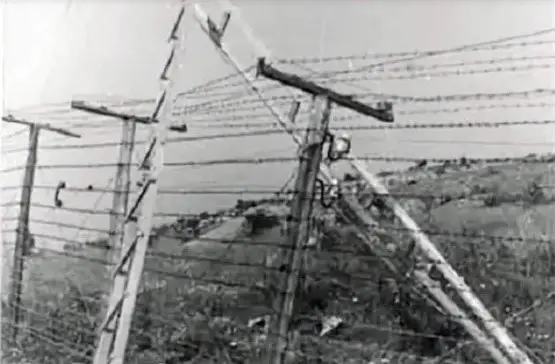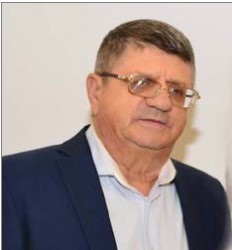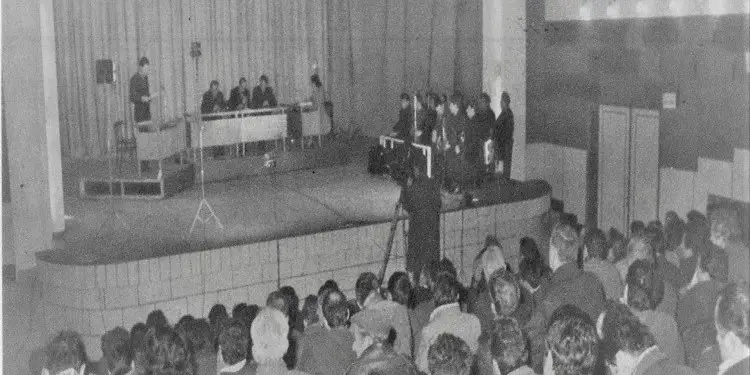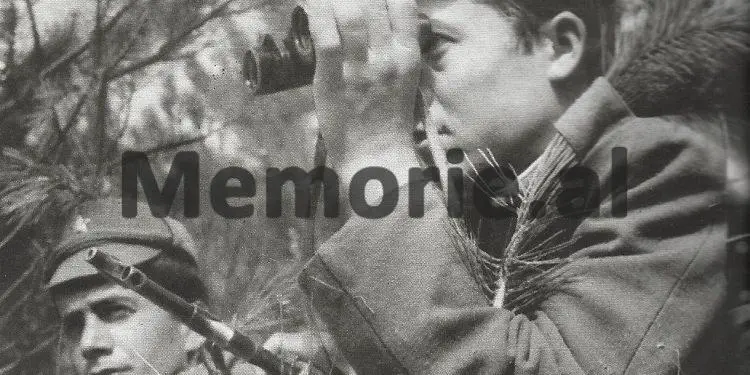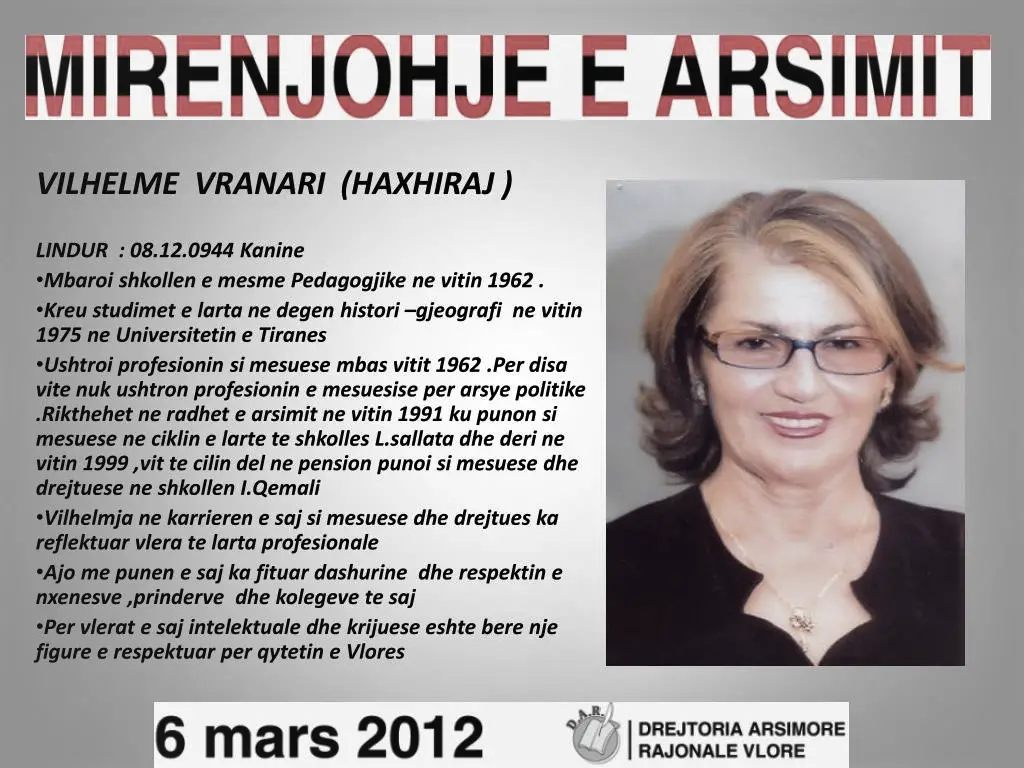Memorie.al / The arrival of the Capa tribe in the Maqellarë area must have occurred about 150 years ago. It is not thought that a blood feud was the cause of this displacement. More than that, the reason should be sought in the fertile land of this region, the large surface area, and its proximity to Dibër e Madhe (Big Dibra), a highly developed civilization of the time. One of the oldest representatives of this tribe, Mexhit Capa, lives in the village of Kurtbeg. He recounts that his great-grandfather descended from Selishta, having married into the Keshi tribe in Majtarë. His son, Beqir, grew up in Majtarë, near his uncles’ lands. From his marriage came four children: two daughters and two sons, Ymer and Mehmet, who is Mexhit’s father.
In his memoirs, Mexhit describes his uncle, Ymer, as a knowledgeable and brave man. It was around 1917, and there was fighting against the Serbs, who were violating Albanian lands and Dibra in particular for the umpteenth time. His uncle, with several other men under the command of Halit Lleshi, was stationed in a tower in a village of Zerqan. Serbian forces surrounded the tower and called for surrender. Ymer and some of his comrades broke through the encirclement from the back and escaped into the forest adjacent to the house. When he went to Halit Lleshi, his commander valued and congratulated him for his bravery.
Ymer did not live long. He married, had a daughter, and passed away quickly. His father, Mehmet, was also a hardworking, generous, and brave man. He had three sons: Dilaver, Beqir, and Mexhit. As a nationalist and an unyielding man, he did not join the National Liberation Movement or the communist forces, and this was not viewed kindly by the new government officials. Vengeance would soon begin against him, his family, and many others in the area who had maintained the same stance.
It was 1946. The notorious commander, Mehdi Bilbili, had launched an operation to subdue and eliminate the “heads” of Maqellarë and all of Dibra. In the village of Bllatë e Sipërme (Upper Bllata), they caught and arrested Dalip Lazri; in Majtarë, they arrested Lam Zeqa; in Allajbegi, Haxhi Rushiti; in Grezhdan, Gafur Aga’s father; in Kurtbeg, Bit Dema, Kurtulla in Pocest; and Murat Date in the village of Erebarë. The latter was executed in the stream, even before reaching the main road, while the others were sent to prisons and interrogations.
On the same night, the Security forces surrounded Mehmet Capa’s house and called for him to surrender. He had a weapon. He could have killed two or three of them; he could have broken the encirclement and escaped. No, that would not have been the right decision. He would leave behind six children and two wives. He would save his life, and after him, a family where there would be no survivors. The communist state machinery would spare neither the women nor the children. Even though Mehmet surrendered, his house was subjected to an unprecedented search, worthy of horror films. Mexhit, who was a 5-6 year old child at the time, recalls the terrible scenes.
“Nënëmadhja (Grandmother/First Wife), that was the name of Mehmet’s first wife, was tortured in an unparalleled manner. The eldest brother, Dilaver, who was only 13 years old, was tortured just as cruelly. ‘Who has visited you, from strange people? Tell us the names! Has Sabri Bey been here?’ These and many other questions were asked to the children, terrified by their clothes, their weapons, and their harsh voices. They grabbed Dilaver by his tender throat, nearly choking him. It took more than two months after this episode for his throat and the wounds caused by those heartless people to heal.”
“My father,” continues Mexhit Capa, “along with the others, was sent to the Peshkopi prison. Endless torture and tortures. Senseless and absurd. Even he did not know the reason! Only two months had passed, and my father, Mehmet Capa, died. Whether he was killed, poisoned, or died under torture, no one learned the truth. Even to this day, his grave is not known. Along with two other fellow sufferers, he might be in the same grave, either in Kamen or in Llasen, at the entrance to the city.”
Only a few months passed after these terrible events when another equally horrifying action appeared among the population: the action of collecting weapons. There were no deadlines or understanding for their surrender, only orders and golden opportunities to strike any disobedient person. Mexhit recounts that: “Our family surrendered two rifles, while we hid a Nagant somewhere, to have it for any eventuality. The weapons collection center was at the mosque in Bllatë e Sipërme. We had a close cousin, Osman Capa, Ramiz Capa’s father.
One day he came to our house pale, tired, and extremely upset. Nënëmadhja asked him what had happened. ‘They beat me and crushed me, oj mixhavajc (a term of address), – said Osman. – Look what they did to me!’ He lifted his white shirt a little at his sides, where swollen and bruised wounds were visible. ‘I surrendered the rifle I had, but they are asking for a Nagant, and I don’t know where to find one.’
Nënëmadhja felt sorry for him. She went and took the Nagant she had hidden somewhere in the rafters and handed it to him. ‘Take it and go surrender it.’ That’s what poor Osman did. He surrendered that small killing tool, but the tortures they had inflicted on him were too extreme. He went for treatment several times at the hospital in Dibër e Madhe, but he never recovered. After six months, he passed away as a result of the wounds inflicted by the state police.”
ESCAPE TO YUGOSLAVIA
Difficult times came for Mehmet Capa’s family. They were times of crisis for the whole country, for all people, an extreme poverty. The absence of the head of the family was a very serious challenge for the eight members, where almost no one was able to work. “Not only that. To all these misfortunes was added an even greater evil. Instead of someone taking pity on us and filling the void left by our father’s absence, this was a reason to humiliate us even more. At a village meeting, the police chief or the Head of the Branch came and solemnly declared: ‘Look, we will take the soul out of these ones too,’ – pointing to us, – ‘just like we did with their father,’ says Mexhit.
After many attempts, Mexhit obtained a work permit to work as a fireman in the Bulqizë mine, in the sector where the prisoners worked. What more could they do to him?! Every day on new fronts, in dangerous spaces, with explosive materials in his hands. But even there, they did not leave him alone. “One day,” says Mexhit, “they called me and two other colleagues. They asked us for some clarifications about our biographies and dismissed us from work. We saw that black fate was following us like a snake everywhere. We could not hide from it, we could not run away anywhere.”
When all paths were blocked, perhaps only one remained open. Their eyes turned beyond the border, which was only a few hundred meters away. They knew the dangers of this undertaking. They knew they could be caught while crossing it, and they knew they could be returned even after having crossed it. But they trusted their dream. Perhaps the continuous suffering and humiliations had come to an end?
Quietly, they made the final preparations. The two brothers, with their families, would leave. Dilaver, the eldest of the three brothers, was not included in this plan. Beqir was the middle brother and had three children: Jena, five years old, Meti, three years old, and Zeni, only one year old. What if one of the two young boys cried and gave them away?! They had taken some cotton with them to somewhat muffle the crying of the small children, should that happen.
January 1969. The two families, together with the small children, set off toward the unknown. Mexhit recalls that it was snowing, and they crossed the border somewhere below the village of Kllopçisht. They had one weapon with them, simply to calm themselves. They went to Dibër e Madhe and surrendered there, where they were held for 17 days until verifications were made. Bad luck followed them again. At that time, the two states had an agreement for the return of those who had fled, and thus, they had to return to Albania. As if the troubles they had were not enough, now they would also be tried “for treason against the homeland.”
They returned at Qafë e Thanës. Then they were sent to Pogradec and from there to Tirana, where they were kept in prison for five days. From there, in a prison-van, they were sent to the cells of Peshkopi, to undergo further investigation. The moment of separation from the children was very tragic. It was not a separation for a mere outing, but for 15 or 25 years, without seeing or hearing their voices. The children’s uncle, Selman Rexhepi from Hotesh, took them to his house. From now on, he would be their uncle, parent, educator, guardian, and everything else, to slightly alleviate their pain and sorrow.
They stayed in the Peshkopi cells for six months. Four months of this period passed without a trial. All kinds of tortures were applied to their bodies. All sorts of spies and provocateurs were put in their cells. It was a real hell, and they did not know when it would end. And then the day of the trial arrived. It was held at the City Cinema. They even set up loudspeakers so that the citizens could hear how the “criminals and traitors” of the country were given their deserved sentence. The prosecutor asked Mexhit: “Why did you flee to Yugoslavia? You were working in Bulqizë”?! Mexhit replied that there were seven of them, and they could not live on one kilogram of corn bread a day.
The trial lasted two consecutive days. In the next session, they removed the loudspeaker. Civilians had also come to testify against us, demanding our maximum sentence. Mexhit remembers many of them, whose judgment he has left to God’s competence. The prosecutor gave the indictment. The two men were to be sentenced to execution by firing squad, while the women were sentenced to ten and fifteen years in prison. “What do you have to say as a final word?” asked the head of the court. Mexhit stood up and told the judicial panel to execute him and spare his brother, because he had three small children. As soon as he finished speaking, his brother, Beqir, stood up and said that he was the bigger culprit, as he had convinced his younger brother.
The two brothers were thus “fighting,” each seeking death for himself and life for his brother. The judicial panel was terrified by that extraordinary scene of a brother’s love for his brother. In the afternoon, the final verdict was given. Beqir Capa was sentenced to execution by firing squad, Mexhit to 25 years of deprivation of liberty, Mexhit’s wife to 15 years, and his sister-in-law to ten years, as she was the mother of three small children. After appealing to the Supreme Court, the decision was upheld, and a month later, the Presidium commuted Beqir’s death sentence to 25 years.
THE RESHAN BRANCH
Another branch of this distinguished tribe grew and developed in Reshan, a small neighborhood of the village of Bllatë e Poshtme (Lower Bllata). Miftar Capa the elder is mentioned as its founder, but he did not have a long life. A severe illness separated him from this world at a young age, leaving behind only one son, Hasan, seven years old. Just one year later, another blow shocked the young boy. His mother also passed away, leaving him doubly orphaned. Tofik Xharri from Pesjakë, the orphan’s uncle, would now become his mother and father, teacher, and educator. He grew up and married in Pesjakë with his uncles, and later sought to return to his birthplace.
Unable to build or buy a house, he stayed for several years in Bllatë e Sipërme with family friends, at Hamdi Dida’s, Hysen Arapi’s, and finally, at Lut Troca’s. Meanwhile, some families of the Daci tribe in Reshan left for Turkey, and Hasan Capa, with his new family, moved into one of their houses. He had close relatives in the Sohodolli tribe in Kojnarë of Dibër e Madhe, so the State Security surveilled him, worried that Hasan might one day cross to the other side of the border. In fact, that did not happen. Hasan got to work and, together with his wife, raised six children, four sons and two daughters.
Economic difficulties did not allow Hasan’s children to be properly educated, even if their love for books was great. They worked hard in different sectors: agriculture and livestock, mining, and trade, and thanks to God, they managed to create their own families, build beautiful houses, and gain the respect of the community where they live. Miftar is the eldest of them and the only one who has remained in Reshan, where all the children were born and raised. Seven children were born and raised, along with Naime, and each of them has now created their own family.
The second son, Xhelal, has three sons and one daughter. He has built a beautiful villa in Maqellarë and a wholesale market there, where he works with his family. Zenel, the third of the sons, has only one son, Bernard. After finishing high school, he studied business at the University of Tetovo. Together with his father, they have set up a very successful business for the production of jufka (a type of pasta). Zenel and the youngest brother, Hajri, have two beautiful villas on the road that leads to the Bllatë Customs.
Many, many years ago, Hasan Capa was a seven-year-old orphan without both parents, and now, from the first generation of children alone, there are at least twenty people. Thus, with work, effort, dignity, and faith in God, this strong branch of the honored Capa tribe is constantly increasing its values.
THE CAPA TRIBE IN MAJTARË
The first of the Capa tribe to descend from Selishta to the Maqellarë area was Dan Capa. He had two sons, Dalip and Sherif. Initially, they did not settle in Majtarë, where they live to this day. Their first settlement was the village of Reshan, which at that time was a Daci çiflig (estate/fief). They stayed there for a full 40 years as farmers at Daci’s house. Dan Capa and his two sons were great workers and quickly built up their family economy. Seeing their progress, Lleshi advised Daci to remove them from the çiflig, as they would take over the place.
Indeed, after a long time of staying there, the newcomers bought a land plot in the village of Majtarë, and there they would stay, work, and create families. On the newly purchased plot, they built a three-story tower, right at the beginning of the last century. But in one of the Serbian bombardments, the tower was hit by cannon, and one of its floors collapsed, leaving the other two floors. In addition to the plot, they also bought four hectares of land across the stream, which was the property of Riza Cami. Dalip had two sons, Shaqir and Nazif, and the other son, Sherif, had Mersim.
Shaqir had three sons: Laim, Tofik, and Latif. In July 1950, Shaqir was killed in Gjoricë by state forces and it was later declared that this had happened accidentally. But this did not pass without consequences. Laim, who was an officer at the time, was removed from service and expelled from the party. Similarly, the other son, Tofik, was expelled from the party. Shaqir’s brother, Nazif Capa, also had significant troubles. He was interned for some time in Tepelenë and then in Tirana.
After these upheavals, the life of the Capa tribe families flowed more peacefully. Children increased, new houses were built, and the tribe grew from year to year. Nazif returned quickly from internment. He lived for more than 90 years and left one son, Dalip. He had nine children, six sons and three daughters. God gives man his fortune. All of Dalip’s children are hardworking and serious people.
His six sons: Tush, Bektash, Bexhet, Tasim, Vait, and Besim, have built beautiful villas in Majtarë and on the road to the Customs. They have created their own construction company and work in Italy, France, or elsewhere, setting an excellent example of how wealth is earned through effort, sweat, and honest work.
The other branch, Mersim’s family, also grew significantly. He had four sons: Sherif, Haxhi, Rakip, and Dan. Each of these families grew with sons and daughters. There are fourteen sons alone, who work and live in Albania, Greece, Italy, or other European countries.
The three branches of the Capa tribe in Maqellarë live and work in peace with the community and the people around them. They have presented themselves as people of work, peace, pledge of honor (besa), and bravery. They have shown the beautiful values of the brave highlanders who came from Selishta, even raising these values to even higher levels, deserving our maximum appreciation. Memorie.al




